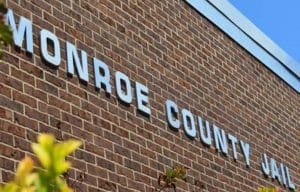Property tax process advances
Monroe County has been issued a tentative property assessment equalization factor of 1.000, according to the Illinois Department of Revenue.
The equalization factor — or multiplier, as it is commonly known — is used to achieve the legally required uniform property assessments among counties.
State law requires property in Illinois to be assessed at one-third of its market value, with farm property being assessed differently, according to standards based on productivity.
The equalization factor is determined annually for each county by comparing the sales price of individual properties sold over the past three years to the assessed value placed on those properties by the county assessor.
If the three-year average level of assessment is one-third of the market value, the equalization factor will be one. If the average is greater than or less than one-third of market value, the multiplier will be less than or greater than one, respectively.
Assessments in Monroe County are at 33.21 percent of market value, based on sales of properties in 2018, 2019 and 2020.
The current tentative equalization factor of 1.000 is for 2021 taxes payable in 2022. Last year’s equalization factor for Monroe County was 1.0183.
The tentative factor is subject to change if the Monroe County Board of Review takes actions which significantly affect property assessments or if local officials present data showing that the Illinois Department of Revenue’s estimates of the average level of assessments in the county should be adjusted.
A public hearing on the tentative multiplier will be held sometime between the next 20-30 days.
A change in the equalization factor does not mean total property tax bills will increase or decrease, as tax bills are determined by local taxing bodies when they request money each year.
If the amount requested by local taxing districts is not greater than the amount received in the previous year, then total property taxes will not increase even if assessments have increased.
The assessed value of an individual property determines what portion of the tax burden a specific taxpayer will assume. This is not changed by the multiplier.
This announcement comes following the recent appeal approvals for many properties assessed in the Waterloo area of the county.
These approvals were published in last week’s issue of the Republic-Times.
Monroe County Board of Review member Mark Altadonna said there were about 250 property appeals this year, which is substantially less than last year’s total of over 400.
While he was unable to give a specific number offhand, Altadonna said most of these appeals were approved.
“My best guess is that the vast majority of them, there was some adjustment to be made,” Altadonna said.
Monroe County Treasurer Kevin Koenigstein said appeals can be made in two ways, either by providing an appraisal from a recent financial transaction such as a bank loan or by arguing that the assessment should be lower and more comparable to that of other properties in the neighborhood.
Farmland, as previously mentioned, is assessed differently, and commercial properties typically require an appraisal as they aren’t comparable like a house.
In either case, the county assessor can present their assessment and, should they choose, the three board members can overrule the assessor and lower the assessment based on evidence provided by the appealing property owner.
The board can also deny an appeal request, at which point the property owner can appeal to the Illinois Property Tax Courts and, after around a year or two, they may overrule the board at which point the county treasurer’s office will issue a refund check.
The next step in this year’s property tax process is the Illinois Department of Revenue setting a final multiplier, which is a factor applied to taxes to balance rates across adjoining counties.
After the state finishes that, the assessments move to the office of Monroe County Clerk Jonathan McLean, where tax rates for individual tax districts are determined.
Once tax bills are calculated, they are printed and mailed by the treasurer’s office.
At the June 20 meeting of the Monroe County Board of Commissioners, Koenigstein said the county should have all real estate taxes collected before the end of fiscal year 2022, barring any delays from the state in producing a multiplier.
With the announcement of the tentative multiplier, taxes should be sent in August – with October and November set as payment due dates.






